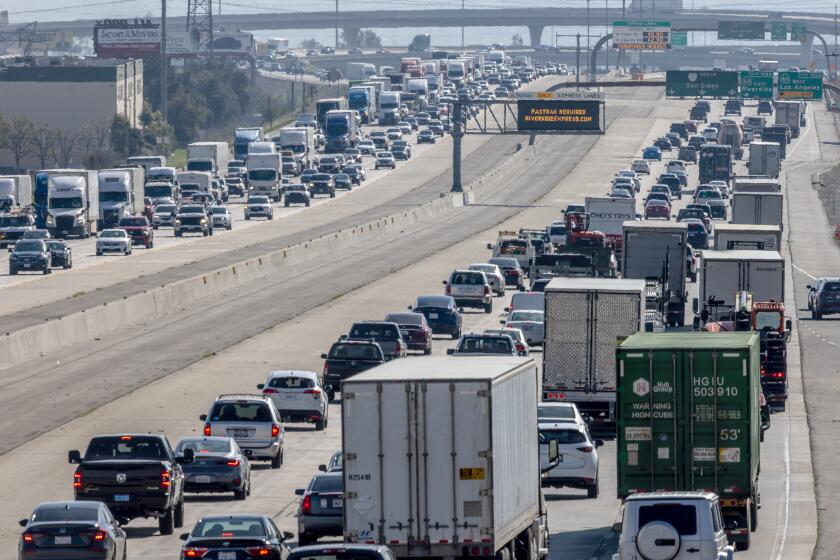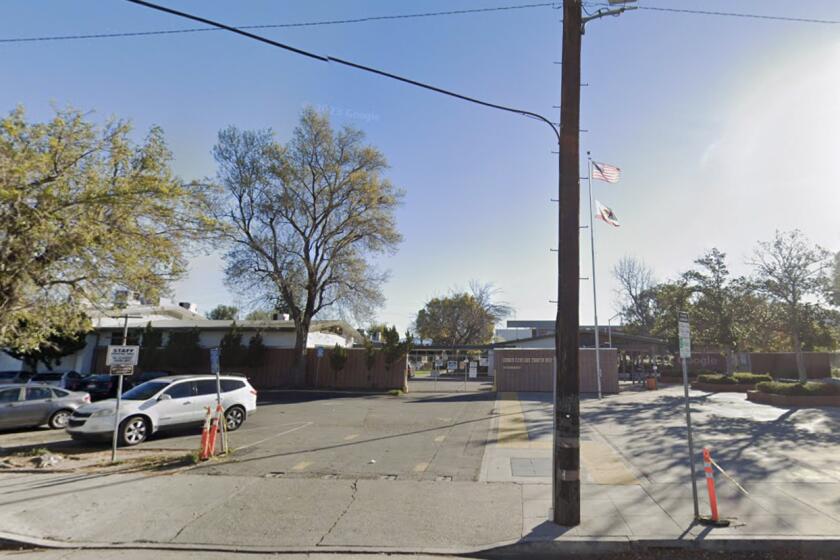Task force focuses on allowing seniors to stay in their homes
The majority of recently polled Laguna Beach residents ages 55 and older would pay for services that allow them to stay in their houses long-term, according to results of a survey mailed to property owners this summer.
A city-appointed task force focused on the housing needs of Laguna seniors discussed results from a study conducted by Cal State Fullerton researchers at a meeting Monday. The group is developing recommendations to present to the City Council by the end of the year, and will present survey results to the council Tuesday.
The task force is considering creating a network of residents called Lifelong Laguna that is modeled after virtual villages that are popping up across the U.S. At the core of the villages is concierge-like service referrals for members, who can find household repair services, and sometimes even personal trainers, chefs or practitioners of Reiki, the Japanese healing technique.
Most important, the villages foster social connections through activities such as potlucks, happy hours and group trips, The New York Times wrote.
Lifelong Laguna was one subject the task force sought feedback on in a survey mailed to 2,977 Laguna Beach addresses where at least one person 55 or older resides. The survey also asked residents about their living arrangements, income and transportation habits.
The sampling didn’t take all of Laguna’s population 55 and older into account as nearly 9,000 of the city’s 22,723 residents fit into the age bracket as of the 2010 U.S. Census.
The city received 651 responses, of which 363 people (61%) said they would be willing to pay a monthly fee to join the village, staying in their homes opposed to moving into an assisted-living facility.
Task force members are concerned about the exodus of longtime Laguna residents forced to flee to surrounding cities because they can no longer meet Laguna’s cost of living and/or their houses have become unnavigable — some residents can no longer walk up and down their stairs.
Laguna Beach doesn’t have an assisted-living facility and though members aren’t tossing out the idea, they say the option isn’t a popular one anyway. Eighty-four percent of respondents (529 of 651) said they would like to stay in their homes as they got older.
Two weeks ago, the city held a public workshop on home modifications seniors can make to stay in their houses. An example includes adding handicap and/or wheelchair accessible ramps.
“People would like to stay in their homes, but they don’t know how to adapt,” said Anne Johnson, a task force member and Laguna Beach planning commissioner. “They are told X, Y, Z, but decide it’s easier to sell the place and move on.”
The task force said the city could be involved in designating one employee to handle home modification questions while the virtual village could provide a list of reputable contractors for the work.
The group would also like to expand seniors’ transportation options beyond existing services such as Sally’s Fund, which offers free shuttle service to and from the Laguna Beach Community & Susi Q Center for classes and activities. The service also ferries seniors to grocery stores and to meet friends.
“Sally’s Fund works for every ride it gives, but it is a small van that is used a lot,” the task force’s Chris Quilter said. “It doesn’t provide for the numbers [of seniors] we have.”
An on-demand ride service, such as Uber, could factor into future recommendations, but details such as a funding mechanism for any of the services need to be flushed out.
Ninety-five percent of survey responders said they drive a car, with 25% of these people leaving their homes multiple times a day to run errands.
The idea with the virtual village is bringing services to a person’s house, so they don’t have to get in their cars.
Quilter, board member for the nonprofit advocacy organization Laguna Beach Seniors, said a 95-year-old man with a cataract called him for an optometrist referral. The man told Quilter he still had his driver’s license.
“He said, ‘I can drive well,’” Quilter recalled. “I said, ‘No you can’t, you’ve got a cataract.’ That is a problem.
“His independence is tied to his ability to drive. What if he could pick up the phone and ask someone to take him where he wants to go? We have nothing like that [on-demand, door-to-door service in Laguna].”
Uber relies on smartphones for making ride appointments, and nearly 59% of survey respondents who access the Internet do so using smartphones.
More to Read
Start your day right
Sign up for Essential California for news, features and recommendations from the L.A. Times and beyond in your inbox six days a week.
You may occasionally receive promotional content from the Los Angeles Times.







